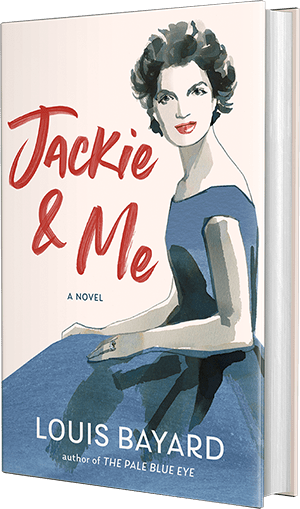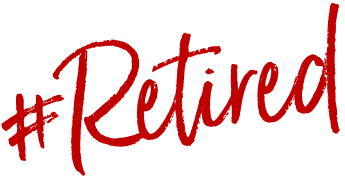I was 12 when JFK won the US presidency and 15 when he was gunned down in Dallas in the first of a string of horrible political assassinations that occurred over the course of my adolescence and early adulthood. They were publicly shared, life-changing tragedies that set my generation on a hyper-idealistic quest to right all the world’s wrongs. It was a painful, unruly, and often ill considered path whose triumphant milestones were offset periodically by violence, drugs, and sidebar melodrama. I am grieved that too many of my contemporaries have forgotten the ideals and lessons of those years. But what follows is not about November 22, 1963, or the many-layered, fractured legacy of that time. This is about Jackie, as the popular press called her (much later Jackie O), or more properly, Jacqueline, pronounced jac-leen, in keeping with her authentically French Bouvier lineage.
If starstruck by Jack, I was awestruck by Jackie, which is what her everyday admirers called her. By what she wore, what she said, what was behind that arresting smile and the hint of shyness it betrayed. I read everything I could find about her.* My very modest eighth grade student newspaper published my short essay on the myriad gifts of the First Lady. While my fascination with everything French goes back farther, to my very early childhood, the fact that Jackie spoke French and had studied at the Sorbonne certainly amplified my francophilia.
She was one of the very few public figures I’d always wished I’d seen in person. After her time in the White House came to such a horrific end, after Onassis died and she returned to Manhattan, I hardly ever walked the New York streets without wishing I’d get a glimpse of her**. I loved the stories that surfaced about her work as an editor at Viking and Doubleday and was never surprised to hear that she’d been a very fine, focused, and respected one. If you think this wasn’t a serious pursuit for her, try poking around online and you’ll see that you’re wrong—for any committed reader, the list of authors she worked with and books she helped to launch is significant, to say the least.
I have deliberately read none of the popular biographies about Jackie. I’d no desire to pluck yet another bloom from the rose or to beef up the coffers of celebrity biographers who rely largely on he said/she said or shock value to sell their books.*** After all, we’d heard plenty about old Joe Kennedy’s racketeering and Jack’s womanizing. And once we grow up, most of us recognize that we are all imperfect creatures.

So many decades later, however, Ann Mah’s Jacqueline in Paris called out to me. Seriously and immediately. For one thing, it’s a novel and therefore, by definition, “pretend.” For another, I’d followed Ann Mah’s blog years ago and subsequently her career as a wonderful travel writer. I knew how well she knew Paris, and that there was nothing frivolous about her writing.
Jacqueline in Paris is a richly written and meticulously researched account of Jackie’s time at the Sorbonne, 1949-1950, when Paris was still reeling from the trauma, divisions, and deprivations of the war. It’s fair to say that while Jacqueline is very richly and believably drawn. The story fits together like a well-worn leather glove. There are conflicts and contradictions on multiple levels, and you are likely to learn a few things, true things, that you may not have known about the American presence in post-war Europe. And there’s a romance. But Paris itself has character status in this book. If you’re to fortunate enough ever to have been there, I guarantee that you’ll feel yourself walking its streets, seeing the mist hanging over the Seine.

If you’re so inclined, I encourage you to read this marvelous novel. And if you like it, you may want to follow it with Louis Bayard’s Jackie and Me, a novel that takes a completely different look at Jackie’s pre-White House life, at the time she met Jack. This story is told from the point of view of a close Kennedy friend, Lem Billings, whose own story is equally captivating (and sad, by the way). This book is well crafted and full of well-done dialogue. Jackie emerges as a young woman determined to have an independent life of her own choosing, yet the life she is drawn into is not one she would have longed for or expected; the Kennedy men emerge as revolting, their father in particular. It’s a fascinating juxtaposition with Ann Mah’s book.
*In those days, America was in love with the First Family, who had moved into the White House with a toddler and a new baby. The news about them was all positive—the scandal rags had not yet become ubiquitous, and there was, of course, no such thing as a 24/7 online “news cycle”. Or Facebook, Instagram, or Twitter. Nothing was instant or universal, for good or ill.
**I never ran into Jackie in New York, but in the summer of 2001, I did get to see the Metropolitan Museum of Art’s exhibition of memorable apparel from her White House wardrobe. It was a thrill, and it touched me deeply. Hence, the cover photo of the catalogue.
***That said, there are some weightier books about her that are probably worth reading, including Jackie as Editor: The Literary Life of Jacqueline Kennedy Onassis, by Greg Lawrence. Given my near lifelong interesting in publishing, It’s on my list.


Maureen Hart
Like you, I loved Jackie and the whole myth of Camelot. I was in my early teens and I wanted to dress like her (obviously impossible) and be cultured and classy like her. She was vastly different than the role models of teens later on who have aspired to Gothic, punk, and other trends that confound me. My other role models were Audrey Hepburn and Grace Kelly, so I think you can see a theme here. The fashion images I loved belie the very real problems of the times in which we grew up and which seem to have only gotten worse. (Although, in addition to the clothes, people were generally kinder and more polite back then.) Still, I would not trade those years for anything because through Jackie I first learned about Pablo Casals and French culture and about poetry and literature and music and history in general. The Kennedy years were cultured. It still astounds me that Jackie herself was only in her early thirties during this time and still had such an influence on so many of us…..
LikeLike
Angela
Everything you said, squared. It’s easy to see the past through rose-colored glasses, but her presence elevated our appreciation and understanding of so many things. ❤️
LikeLike
Dorothy's New Vintage Kitchen
I loved her too! She always acted with grace and class.
LikeLike
Preston
Angela,
Thank you for your words. Everytime I read your thoughts I am transported to a beautiful place. Thanks.
Blessings of peace, comfort, and love,
Preston
LikeLiked by 1 person
Angela
You are so kind, Preston! I wish you and your beautiful family a joy-filled Christmas!
LikeLike
Judy@NewEnglandGardenAndThread
I grew up at the same time as you and have many similar memories. I can visualize where I was when JFK was shot like it was yesterday. I’m kind of glad there was no social media then because it could have ruined our impression of Camelot.
LikeLiked by 1 person
Angela
Oh, for sure. Thank you for reading, Judy.
LikeLiked by 1 person
Karen (Back Road Journal)
Your book recommendations are much appreciated, especially Jacqueline in Paris. I went down to the JFK museum in Boston when they had an exhibit of her dresses…I loved it. I hope you had a nice Christmas Day.
LikeLike